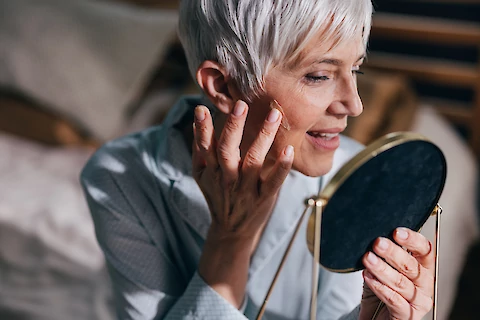
As we age, taking care of our skin becomes increasingly important, particularly during the year's hottest months. Sun exposure causes various adverse effects on seniors' skin, including increased dryness, wrinkles, and age spots. However, many seniors don't know that some popular skincare products may make their skin more sensitive to the sun.
This blog post guides seniors through six skincare products that may increase sun sensitivity and shares tips on using them safely during summer.
Retinol and Retinoids
Retinol and retinoids are Vitamin A derivatives widely praised for reducing the appearance of fine lines, wrinkles, and age spots. However, these skincare products popular with seniors may also make their skin more sensitive to sunlight.
To safely use these products during the summer months, seniors should try applying them in the evening instead of the morning, as this allows them to work their magic overnight when sun exposure is minimal. Seniors should also moisturize well and wear sunscreen daily to protect their skin from sun damage.
Alpha Hydroxy Acids (AHAs)
Alpha hydroxy acids, or AHAs, are commonly found in skincare products designed to exfoliate and rejuvenate the skin. They help improve skin texture and reduce signs of aging. However, they also increase sun sensitivity.
To minimize the risk of sun damage while using AHAs, seniors should apply them at night and always wear sunscreen during the day. If they're using a product with a high concentration of AHAs, consider reducing the frequency of application during the summer months.
Beta Hydroxy Acids (BHAs)
Like AHAs, beta hydroxy acids, or BHAs, contain exfoliating agents that help improve skin texture and tone. They are particularly effective for combating acne and clogged pores. However, BHAs also increase sun sensitivity, so it's essential for seniors to practice proper sun protection while using them. As with AHAs, consider applying BHAs in the evening.
Benzoyl Peroxide
Benzoyl peroxide is a popular ingredient in acne treatments due to its antibacterial properties. It helps to clear breakouts and prevent new ones from forming, but it may also make seniors' skin more sensitive to the sun.
In this case, seniors should apply sunscreen daily to protect their skin if they're using a benzoyl peroxide treatment. They might also want to explore other acne treatment options with lower sun sensitivity risks during summer.
Topical Antibiotics
Topical antibiotics often get prescribed for various skin conditions, including acne and rosacea. While treating these issues effectively, topical antibiotics may also increase sun sensitivity. If seniors are using a topical antibiotic, they should make sure to apply sunscreen daily and seek shade whenever possible.
Essential Oils
Seniors will find essential oils in skincare products for their therapeutic properties. However, some oils, such as citrus oils, can make their skin more sensitive to sunlight. To minimize the risk of sun damage, seniors should use products with essential oils with caution during the summer months. They should also apply them in the evening, and wear sunscreen during the day.
Sunscreen Tips for Seniors
It's crucial for seniors to use sunscreen to protect their skin from the harmful effects of the sun. Choose a broad-spectrum sunscreen with an SPF of at least 30 formulated explicitly for aging skin. If seniors are fair-skinned, they should opt for a sunscreen with an SPF of at least 50. Use it generously and reapply every two hours or after swimming or sweating for optimal protection.
Senior Helpers Can Assist With Seniors' Daily Routines
While the skincare products mentioned above may increase sun sensitivity, it's still possible for seniors to use them safely during the summer months by adjusting their routine and practicing proper sun protection. Remember to apply these products in the evening when possible, moisturize well, and always wear sunscreen.
For seniors living in Indianapolis, Greenwood, Columbus, Martinsville, Franklin, and Marion County, Senior Helpers Greenwood & South Indianapolis is here to help maintain skin health and overall well-being. Contact us today for more information on our in-home care services.